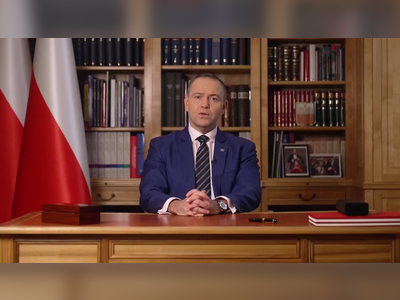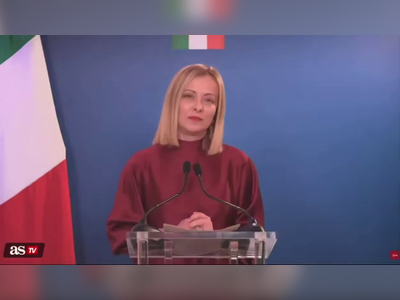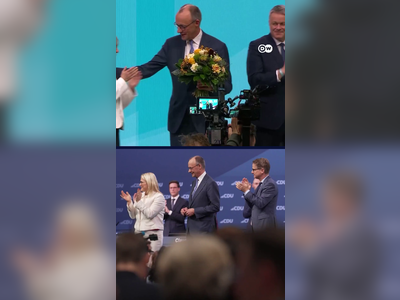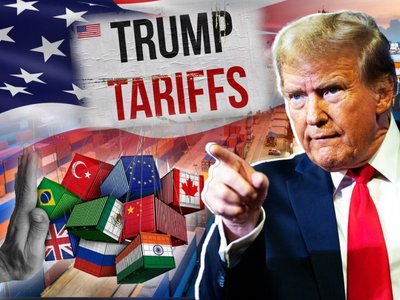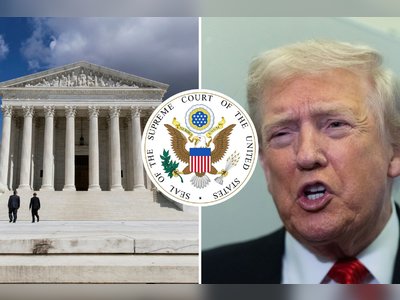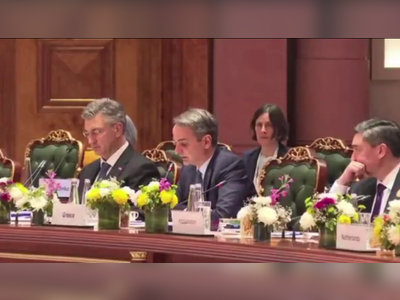ECB's Cautious Rate Cut: Balancing Inflation and Growth Concerns
Christine Lagarde signals prudence amid economic uncertainties in the Eurozone.
In a unanimous decision, the European Central Bank today lowered its benchmark interest rates by 25 basis points, marking the fourth reduction this year.
This move reflects newfound optimism regarding inflation, which appears increasingly contained, potentially heralding further rate cuts in the new year.
However, the ECB's cautious approach underscores ongoing worries about weak growth across the Eurozone, with analysts predicting contraction in the current quarter and GDP growth barely above 1% in 2025.
Presiding over the ECB’s monetary policy meeting in Frankfurt, President Christine Lagarde described the disinflationary process as 'well underway'.
Nevertheless, she cautioned that the mission to curb price hikes is not yet complete.
Amidst debate, some ECB members advocated for a more aggressive 50 basis point cut, driven by sluggish economic conditions, yet prudence ultimately guided the decision-making process.
Lagarde stated, 'Our experts anticipate average inflation rates of 2.4% in 2024 and 2.1% in 2025,' aligning closely with the ECB's medium-term target for price stability.
The ECB's actions are data-driven, with Lagarde emphasizing that future decisions will be 'meeting-by-meeting.' Despite current monetary policy being deemed restrictive, designed to temper economic activity, the omission of any firm commitment to maintaining 'sufficiently restrictive' levels in their final statement suggests a shift towards easing.
As the ECB remains poised for another potential rate cut in January, growth—or the lack thereof—remains a pressing concern.
Geopolitical and economic uncertainties cloud Europe's horizon, from France's political struggles to Germany's upcoming early elections and the specter of trade uncertainty should Donald Trump return to the U.S. presidency.
With a revised GDP growth forecast of just 1.1% for 2025, down from 1.3%, these risks underscore the delicate balancing act that the ECB must maintain.
Ultimately, while inflation may be moderating, the economic trajectory remains fraught with challenges, posing essential questions for Europe's policymakers as they navigate these twin challenges of preventing inflation resurgence and stimulating growth.
This move reflects newfound optimism regarding inflation, which appears increasingly contained, potentially heralding further rate cuts in the new year.
However, the ECB's cautious approach underscores ongoing worries about weak growth across the Eurozone, with analysts predicting contraction in the current quarter and GDP growth barely above 1% in 2025.
Presiding over the ECB’s monetary policy meeting in Frankfurt, President Christine Lagarde described the disinflationary process as 'well underway'.
Nevertheless, she cautioned that the mission to curb price hikes is not yet complete.
Amidst debate, some ECB members advocated for a more aggressive 50 basis point cut, driven by sluggish economic conditions, yet prudence ultimately guided the decision-making process.
Lagarde stated, 'Our experts anticipate average inflation rates of 2.4% in 2024 and 2.1% in 2025,' aligning closely with the ECB's medium-term target for price stability.
The ECB's actions are data-driven, with Lagarde emphasizing that future decisions will be 'meeting-by-meeting.' Despite current monetary policy being deemed restrictive, designed to temper economic activity, the omission of any firm commitment to maintaining 'sufficiently restrictive' levels in their final statement suggests a shift towards easing.
As the ECB remains poised for another potential rate cut in January, growth—or the lack thereof—remains a pressing concern.
Geopolitical and economic uncertainties cloud Europe's horizon, from France's political struggles to Germany's upcoming early elections and the specter of trade uncertainty should Donald Trump return to the U.S. presidency.
With a revised GDP growth forecast of just 1.1% for 2025, down from 1.3%, these risks underscore the delicate balancing act that the ECB must maintain.
Ultimately, while inflation may be moderating, the economic trajectory remains fraught with challenges, posing essential questions for Europe's policymakers as they navigate these twin challenges of preventing inflation resurgence and stimulating growth.
Translation:
Translated by AI
AI Disclaimer: An advanced artificial intelligence (AI) system generated the content of this page on its own. This innovative technology conducts extensive research from a variety of reliable sources, performs rigorous fact-checking and verification, cleans up and balances biased or manipulated content, and presents a minimal factual summary that is just enough yet essential for you to function as an informed and educated citizen. Please keep in mind, however, that this system is an evolving technology, and as a result, the article may contain accidental inaccuracies or errors. We urge you to help us improve our site by reporting any inaccuracies you find using the "Contact Us" link at the bottom of this page. Your helpful feedback helps us improve our system and deliver more precise content. When you find an article of interest here, please look for the full and extensive coverage of this topic in traditional news sources, as they are written by professional journalists that we try to support, not replace. We appreciate your understanding and assistance.

